Ruidoso’s 7,000 residents faced a harrowing ordeal as a merciless wildfire devoured acres. Authorities barked urgent commands – evacuate immediately, belongings be damned.
The South Fork Fire’s tentacles stretched relentlessly, consuming 8.2 square miles. Containment? A mere fantasy at zero percent. Mexico has witnessed a surge in catastrophic wildfires in recent decades, exacerbated by climate change.
A Village Under Siege
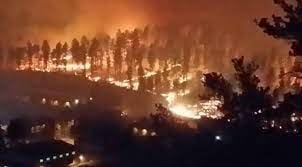
Structures crumbled in the fiery onslaught, their numbers unknown. US Highway 70 fell victim, its southern stretch impassable. Power lines succumbed, plunging parts of Ruidoso into darkness.
The Mescalero Apache Reservation declared a state of emergency as the blaze ravaged tribal and federal lands. Wildfires have decimated vast swaths of Mexico’s forestlands, causing irreparable damage to ecosystems.
A Twin Threat
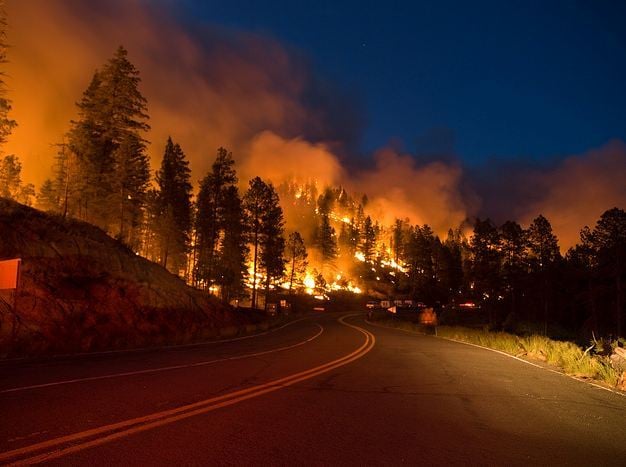
As if one wildfire wasn’t enough, a second blaze, the Salt Fire, joined the fray. Raging across 4.3 square miles of the Mescalero Reservation, it added to the chaos.
Containment proved elusive for both infernos, their boundaries ever-shifting. Mexico’s wildfire season has grown longer and more intense due to drought conditions and mismanaged forests.
A Hasty Exodus
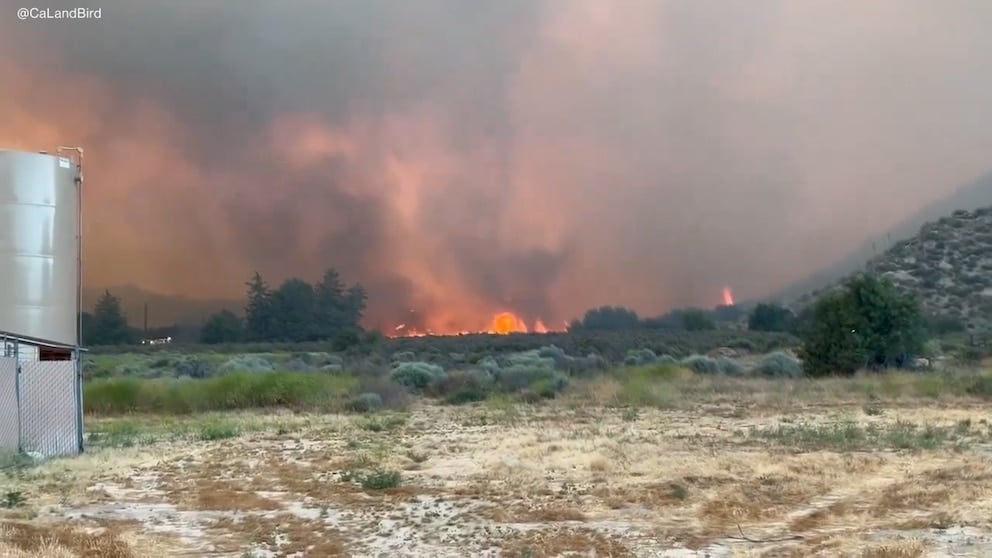
Residents fled with mere minutes to spare, abandoning homes and possessions. Mary Lou Minic’s harrowing account – a meal interrupted, a frantic dash to the car.
Within moments, Ruidoso’s streets emptied as evacuation orders thundered. Wildfires have displaced countless Mexican families, leaving them to rebuild their lives from the ashes.
A Shroud of Smoke
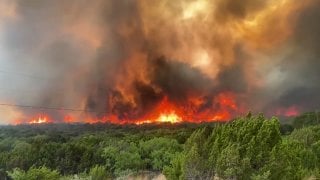
The air itself became an enemy, choked with smoke. An ominous haze blanketed the region, rendering the atmosphere toxic.
Ruidoso and its environs gasped for clean air as the blaze spewed noxious fumes. Mexico’s wildfires have contributed to severe air pollution, posing respiratory hazards to humans and wildlife alike.
A Scorched Earth
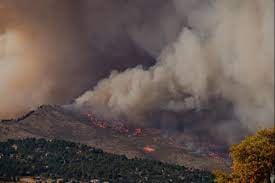
In Mexico, wildfires have laid waste to millions of acres of land, leaving once-vibrant forests reduced to charred landscapes. The loss of vegetation has disrupted ecosystems, depriving wildlife of vital habitats and food sources.
Many species now face the threat of displacement or extinction due to these recurring blazes. As temperatures rise and weather patterns become more erratic, the risk of catastrophic fires escalates, jeopardizing the planet’s finite resources and biodiversity.
A Desperate Battle
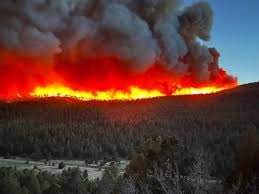
Firefighters in Mexico and across the border wage a relentless war against the flames. They risked their lives to protect communities and natural resources.
Ill-equipped and underfunded, they often find themselves outmatched by the sheer ferocity of these fires. Their challenges fueled by climate change and human negligence.
A Cry for Resilience
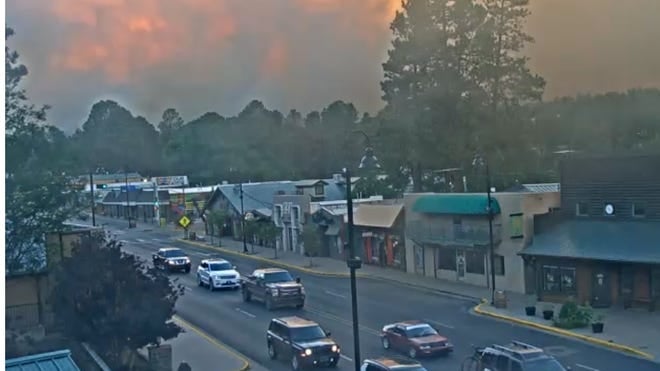
In the aftermath of wildfires, Mexico has struggled to implement effective reforestation and prevention strategies. Limited resources and corruption have hampered efforts to rebuild and safeguard vulnerable areas.
It leaves leave the country susceptible to future catastrophes unless substantial changes are made. The time to act is now, before more lives, homes, and natural wonders are lost to the unforgiving flames.
A Broken Ecosystem
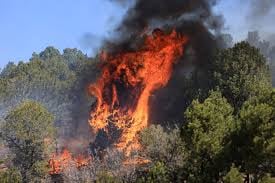
The destruction wrought by wildfires in Mexico extends far beyond the charred landscapes. Soil erosion, water contamination, and loss of biodiversity have created a ripple effect that threatens the delicate balance of entire ecosystems.
Wildlife populations, already under stress, face dwindling habitats and food sources. Many animals and birds were exhumed in the fire.
A Displaced Nation
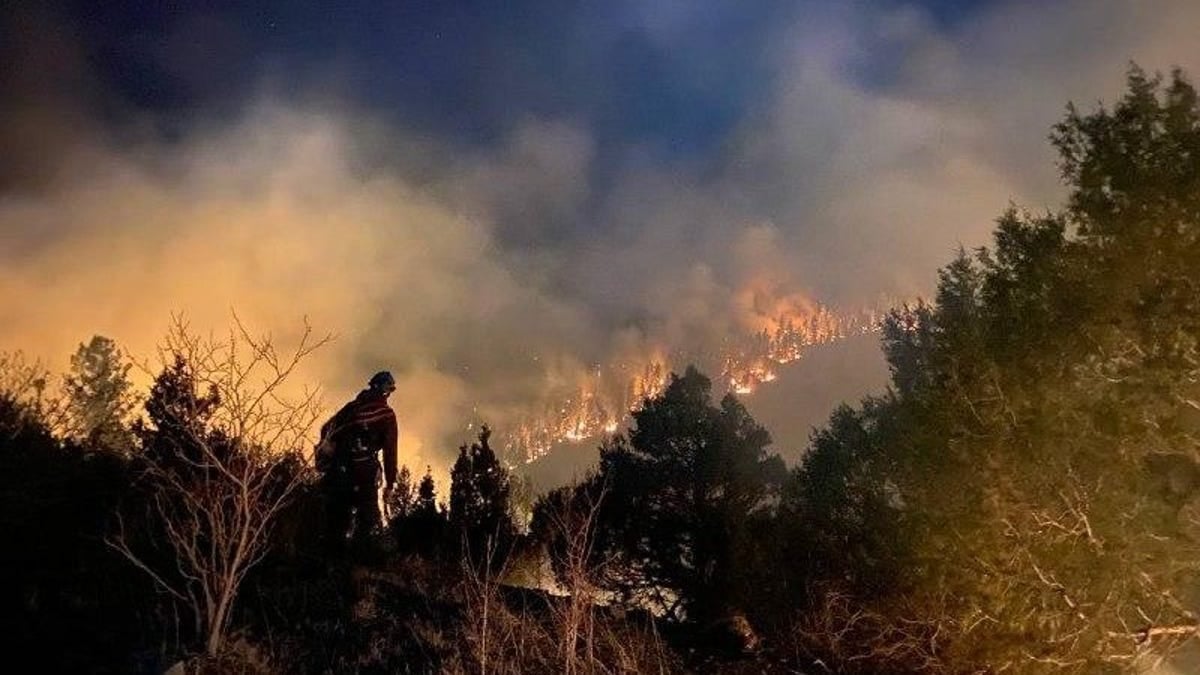
For many indigenous communities in Mexico, wildfires have disrupted ancient ways of life intrinsically tied to the land. Forced to abandon their ancestral homes and traditions, they find themselves displaced, their cultural heritage.
The wildfire crisis in Mexico serves as a stark reminder that no nation is immune to the devastating consequences of climate change. Combating the scourge of wildfires requires a multifaceted approach.


